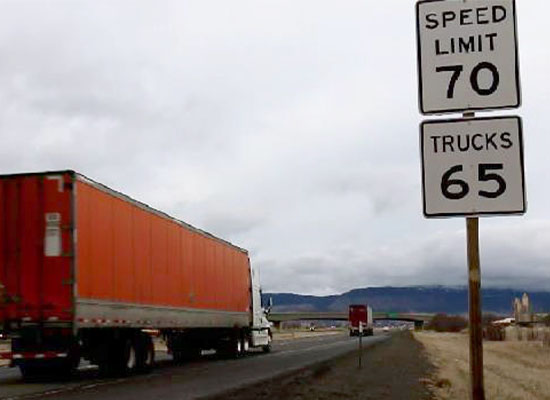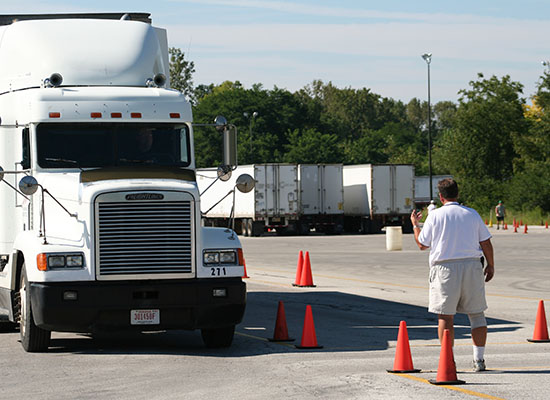- 1603 Capitol Ave. Ste. 310, Cheyenne, WY, 82001
- +1 (307) 222 4897
- info@acetruckingservices.com

The transportation sector is dynamic, complicated, and constantly changing. Understanding numerous regulations and new trucking legislation is essential for running a profitable fleet or owner-operator business. Maintaining compliance and keeping trucks on the road requires staying on top of the following trucking regulation updates. This blog is aimed to provide information on the legal regulations in the trucking industry and standards in the trucking industry. Read on!


The Interstate Commerce Act was approved in 1887, and the Interstate Commerce Commission (ICC) was formed. While the Interstate Commerce Act was created for the railroad business, the law's primary purpose was to ensure fair prices and make them public. It was also the beginning of transportation legislation, as trucks became the primary mode of transportation. By 1935, the trucking sector had swiftly surpassed rail in freight transportation. As rail travel declined sharply in a short period, the rail industry advocated for severe trucking limitations comparable to those imposed on rail transit in 1887.
Transportation regulation is overseen by all levels of government (federal, provincial, and local) and governs transportation units' pricing, service conditions, and operational authority. The goal of regulation is to guarantee that transportation services are sufficiently provided and that users are protected from excessive pricing or unfair practices. Regulators can also help certain areas, sectors, or user groups. Regulation may also be required to prevent operators from exploiting a monopolistic position or to manage undesired or possibly harmful features of competition between operators in a competitive setting.
The DOT is in charge of the rules and regulations that apply to enterprises that carry goods and persons. You may discover that you require a DOT Registration, a Motor Carrier number, or both. However, more than half of DOT registration applications still need to be completed. Please appropriately portray your company on your application to avoid its rejection. By enlisting the assistance of specialists, you can ensure that your organization complies with all DOT regulations.
The Unified Carrier Registration replaced the Single State Registration System. Any motor carrier that requires a DOT Number must also get a UCR. If you operate commercial vehicles in international or interstate trade, you must pay an annual charge under the UCR. Your business must register with a participating state, which is likely your home state. A base state is where you live most of the time. If your state does not participate in the UCR, you can register through a nearby state.
Except for a freight forwarder or broker, who can apply on their own, under federal regulation 49 CFR Part368, a corporation that crosses state borders with for-hire vehicles need an agent to file the Blanket of Coverage on behalf of an application. The agent must mention all of the states where you have been appointed. If there are legal concerns outside your company's home state, a BOC3 offers an agent who will accept the incident documentation. It takes only one registration and does not require renewal.
Supervisor training does not apply to self-employed owner-operators. All supervisors who supervise drivers are required by 49CFR Part 382.603 to complete a minimum of two hours of training; 60 minutes on alcohol abuse and 60 minutes on drug abuse. The course contains symptoms of alcohol and drug abuse, such as physical, behavioral, verbal, and performance. Each supervisor must finish the course just once in their career.
The program is in place to keep the public safe. Every motorist must be informed of the dangers of controlled drugs and alcohol to their safety, health, and workplace. As an employer, you must create a written policy and deliver it to each driver.
This notice seeks to alter specific laws to ensure the safe introduction of commercial motor vehicles equipped with automatic driving systems (ADS). The proposed amendments to CMV operations, inspection, repair, and maintenance laws prioritize safety and security, encourage innovation, develop a uniform regulatory approach to ADS-equipped CMVs, and acknowledge the distinction between human operators and ADS.
As a result of the pandemic, FMCSA wishes to limit emergency regulatory relief in five areas to avoid unnecessary waiver renewals. Presidential declarations of emergency, for example, will trigger a 30-day HOS exemption, whereas Governors or their authorized representatives will only trigger for 5 days. This amendment would decrease the duration of the automatic regulatory relief and limit the breadth of the relief offered, ensuring that any impact on safety is minimized during the duration of the automatic regulatory relief.
The FMCSA has issued a notice of intent to continue rulemaking to require speed limiters on most heavy-duty vehicles, resuming a six-year-old process. There is currently no recommendation on what the speed limits should be set to, such as 65mph, 68mph, or 75mph, and if regulation is proposed, we will likely not see it affect drivers until 2024-2026. Since OEMs have been putting electronic engine control units (ECUs) in CMVs since 2003, the sole agreement is that most large-truck equipment manufacturers have already incorporated the technology required for speed limiters to become a reality.
The blog mentioned above stated the trucking industry regulations and the few old and new legal regulations in the trucking industry. By the end of this blog, you will get an idea about the past trucking regulations and upcoming regulations. We also discussed why it is necessary to regulate trucking. So, being a trucker or an owner-operator, you need to consider these regulations.
Your email address will not be published. Required fields are marked*
Copyright 2022 ACETRUCKING.